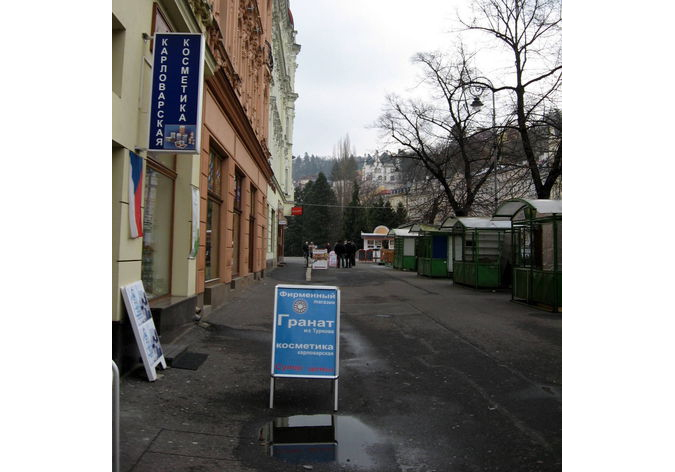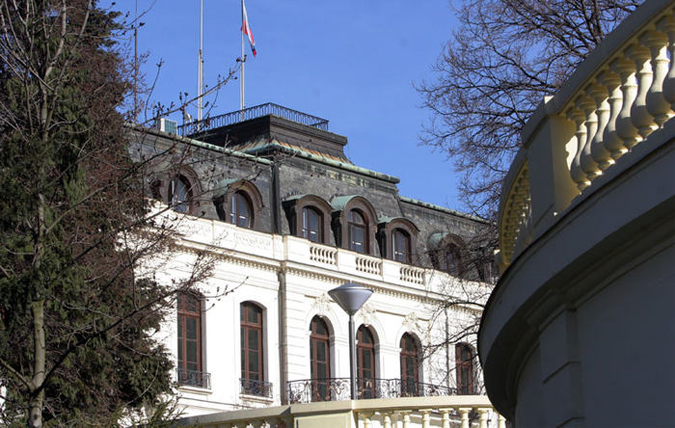The Russian community in Prague is in some ways subject to over-generalization. For a start, there is a tendency to group all people from the former Soviet Union as Russians – something which upsets both Russians and other nationalities. Speaking Russian doesn’t necessarily mean that a person is Russian. They could be Tajikstani, Kazakstani or Moldovian – just to name some of the nationalities of Russian speakers I’ve met here. Even if a person identifies as a Russian national, it is a simplification to think that they are one uniform group of people. Instead, they are cut across by many interests, ambitions, dreams, and concerns.
Diverse Backgrounds
The community which has settled here in the last two decades demonstrates this diversity. Broadly speaking, Russian people have come to the Czech Republic for two reasons – they have been forced from their homeland because of the political situation, or they have come of their own volition to pursue business, find a job, travel, or study (Karel Sládek, Ruská Diaspora v České Republice). The latter reason certainly seems to be true of the people I spoke to.
Differences of background always color any community, and historically, the Russian community was no different. Russians who came here in large numbers in the twenties to escape the Bolshevik Revolution and subsequent civil war were a mixed group, including peasants, professionals, intellectuals, and aristocrats – or people who straddled these divides.
The Russian immigration in the twenties is an interesting episode in Czech history, and illustrates the difference between Russian immigration then and now. They came as part of the so-called “Russian Action”. The program was initiated by Czechoslovakia’s first prime minister, the Russophile Karel Kramář, because he felt “a moral obligation to [help] the young men from the White [anti-Bolshevik] forces finish their education” (Russians Outside Russia). Masaryk later implemented the “Russian Action”, but with more of an emphasis on creating a group of people educated at a European level to administer Russia when, he believed, the Bolsheviks would leave power.
That day never arrived, but in its time it attracted a number of people; not only students but thinkers and their families, including one Elena Nabokov, mother of the famous writer Vladimir Nabokov. Another famous Russian writer with even stronger ties to Prague was the poet Marina Tsvetaeva, who lived here from 1922 to 1925. She even composed a poem about the Czech lands. Nabokov’s mother and Tsvetaeva were just two of the estimated 25,000 Russian émigrés who lived in Czechoslovakia in the twenties. This number steadily declined as the program lost funding due to acknowledgment the Bolsheviks were not giving up power. It was stopped all together in 1934, when Czechoslovakia had to officially recognize the USSR upon the Soviet Union’s entry into the League of Nations that year.
The post-revolutionary period represents a new era of Russian immigration. From 1994 to 2010, the number of Russian people in the Czech Republic has grown from about 3,000 to just over 32,000. From this total, about 18,000 have permanent or long-term residency. The majority of Russian people, approximately 22,000 according to the last census, live in the capital. While these absolute figures represent an approximately nine-fold increase, relative to the number of immigrants, the proportion has only doubled from 3% to 7% of all foreigners.
Karlovy Vary has become strongly associated with the Russian community in the Czech Republic. The Karlovy Vary region had over 1,000 Russian residents, but it was not the most numerous. After Prague, Central Bohemia had the next largest. Perhaps the connection is also due to the popularity of Karlovy Vary with Russian tourists.

Karlovy Vary
According to Oleg Alborov, president of the Coordination Council of Russian Compatriots, the Russian people here work in a wide variety of fields. These include education, a range of cultural activities, publications, medicine, production, law and accounting, to name a few.
Personal Perspectives
To get a better idea about the community, it’s best to speak with the people within it. Katerina Sharuda, Director of Studies of O’Key Language School has been in Prague since 2010, coming here to run the company’s local branch. She speaks English fluently and uses Czech when out and about in Prague. Regarding her interaction with fellow Russians, she meets with expatriates in more informal settings.
“Every Friday a group meets. They don’t have a special topic. What unites them is that they’re expats and they’re here and this is a chance for them to get together and talk,” she said. The venue changes depending on convenience or simply the desire to check out new places. Katerina said that she didn’t think there was one place where all the Russian expats congregated in Prague.
However, she saw certain differences between the newer expats, like herself, and the established communities who have been here for twenty years. She said, “[The older community] have their small businesses. They communicate with the same people very often when I am there, and – well – I’m foreign.”
In contrast, she thinks the newer community is traveling around more while maintaining connections with Russia. She hastened to add, “They feel comfortable and that’s fine. Probably I wouldn’t feel comfortable because I’m a different person.”
Kira Malysheva, a PR director, offered another perspective on socializing in the community. She admitted to spending most of her time with Russian friends. She adds, however, “It’s not because I prefer it that way, I think that in general Russians tend to find each other and because we have a common culture, we stick together.” She also reiterated Katrina’s opinion that there was no special place just for Russian expats. “In general, I would not say that Russians separate themselves much from the rest of the expats and Czechs.”
Cultural activities with friends and family were part of the social life of Maria, a Russian language teacher, but in some ways her response was similar to the ones above. “I have a family, acquaintances and colleagues. We go to the theater and concert. From time to time we share birthdays together. I don’t go anywhere special.”
Marta (not her real name), an office worker with an insurance firm, said she preferred to spend most of her time with her Czech friends. One reason was to improve her Czech language skills. In general, she doesn’t socialize much because of her job. “Work, home, work, home, that is my day,” she said.
The two women are also here for different reasons. Kira was here to be in a European city but be close to home. “Prague is perfect because it is central, has plenty of opportunities and is just a beautiful city to live in,” she said. Marta on the other hand wanted to be close to her daughter who studies at university here. Yet, it’s clear from her Czech language skills that she’s done a lot to assimilate.
Education was a more explicit reason in the case of Irina, a shopkeeper working in Prague. She said she came to the Czech Republic to give her daughter a European education.

Russian Embassy in Prague
Complex Relations
Relationships between the Russian community and Czech society at large are equally diverse and difficult to generalize about. The history of the two countries is one obvious root for the problems. Marta acknowledged this in her daughter’s experience. She said that when her daughter was at a Czech grammar school, she encountered teachers who were aggressive toward her daughter because of the 1968 invasion. This situation changed when her daughter got to university. “Younger people don’t have a problem,” Marta said.
Irina’s daughter finds the situation at school difficult. However, Irina sees this as much to do with her daughter’s performance at school. She said, “My daughter feels a lot of pressure. She’s clever, and her classmates don’t like her.”
For themselves, both women described their relationships with Czech people as good. Katerina was even more positive. “People I meet are friendly. They are more or less open. They are nice, nice to me. It’s about how you treat people. If you’re nice and friendly, they’re nice in return.” Having said that, she acknowledged how the past could affect the relationship between Czechs and Russians.
Maria also described her relationship with Czech people as “normal” and said that, though she couldn’t speak for everyone, “the group of people around her think similarly.”
Though not mentioned by the women, a belief that Russians are involved in criminality here can come up in conversation. If you do a search for “Rusové” in Google, one of the top results is the “Ruská mafie” entry on the Czech Wikipedia. The result doesn’t show how many people believe Russians are involved in illegal activity, but it shows the page has a lot of links. If we go on conviction rates, the number of Russian people found guilty of being involved in crime is quite low – 110 convictions from almost 70,000 in total.
Cultural Traces
Certain parts of Prague definitely have a stronger Russian presence than others. Žižkov has a couple of Russian specialty shops, such as Vlašťovka, with its range of traditional goods like caviar, birch juice, kvass, and a variety of smoked fish. The people who shop there are, according to one of the shopkeepers, from different backgrounds.
A few special days are Liberation Day, May 9, when Russians go to place flowers on the graves of soldiers killed in the Second World War. The other important holidays are Easter and Christmas, which most Russians celebrate in accordance with the Orthodox calendar. For younger people, there are a variety of social events like Russian-themed club nights or social activities for students.
Of course, to get to know Russian culture more you should seek some first-hand experience. There are a number of schools teaching Russian in Prague. Catherine said about her own establishment that, at the moment, the students learning Russian were American. So in one small, way the two expat communities are also coming together.
As ever, we’d like to hear your comments.
***
Other articles in this series:
Related articles












 Reading time: 8 minutes
Reading time: 8 minutes 

























